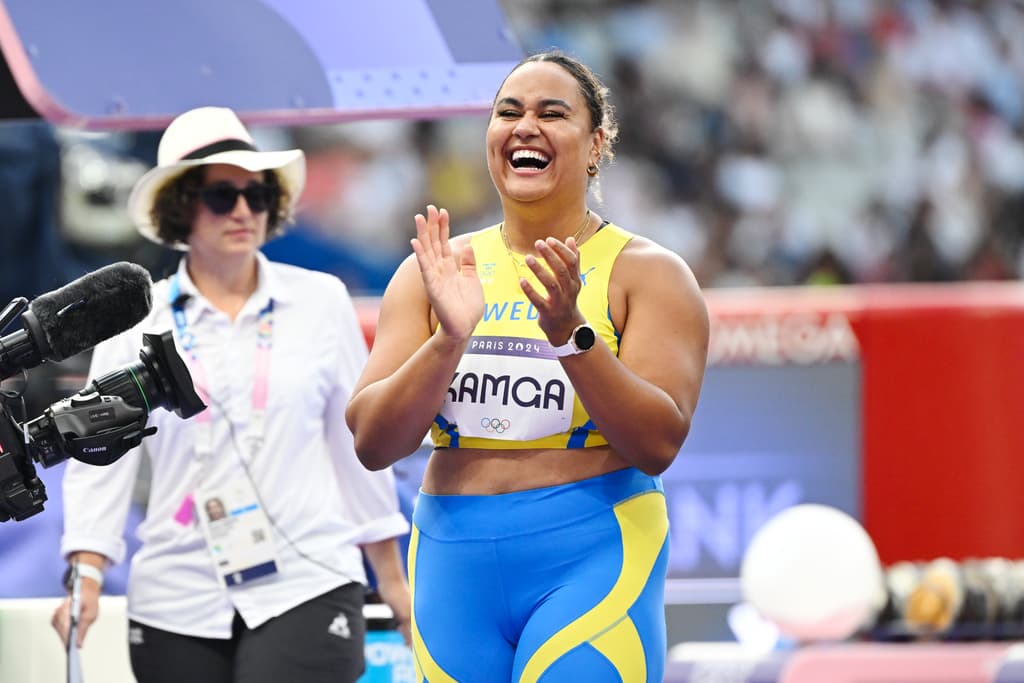The discus thrower made a brilliant Olympic Games debut as she seemingly effortlessly set a Swedish record in the qualifying round (65.15) and was in second place after the first round of the final (65.05).
In the absence of Olympic gold medalist Armand Duplantis, Vanessa Kamga is the top Swedish Olympic track and field athlete in the Finnkampen.
I haven't had time to think about that. But I'm looking forward to competing in blue and yellow again, I hope to put on a little show. I'm still in good form, she says.
At the same time, it's late in the season and I'm not putting any pressure on myself.
Wants to lift the team
The 25-year-old started the competition season back in March and feels that it's been a long season with both the European Championship (fifth) and the Olympic Games (fifth). But the Finnkampen means something extra.
It's not often that you get to be part of a team this big. Here, you get to meet all your track and field friends that you might not have seen all season. And you get to watch your teammates compete since you're only up in your own event one day. The other day, you can lift the team, it's special.
She's of course going for victory in her own discus event tonight.
I want to do the things I want to do in the throw, if I do that, it'll be good, she says.
She dares not predict how the competition will go.
It's going to be extremely close, no matter how it goes.
Swedish sisu
National team coach Kajsa Bergqvist also believes it's going to be as close and exciting as last year when the competition was decided in favor of Sweden, both in the women's and men's events, in the final events.
It was one of the most incredible team efforts I've experienced in this individual sport. The incredible fighting spirit and glow that everyone showed. We'll try to muster that Swedish sisu again this year, says Bergqvist.
When it's this close, every centimeter and every hundredth will decide.
The first Finnkampen was held in 1925, in Helsinki, with only male competitors. Women were allowed to participate for the first time in 1951.
Finland has an advantage in terms of wins on the men's side, 46–37, while Sweden's women have 48–25 in terms of wins.
Last year in Stockholm, it was very close. The men's competition ended 227–227 and Sweden won due to more event wins. Sweden's women won with 228.5–225.5.






